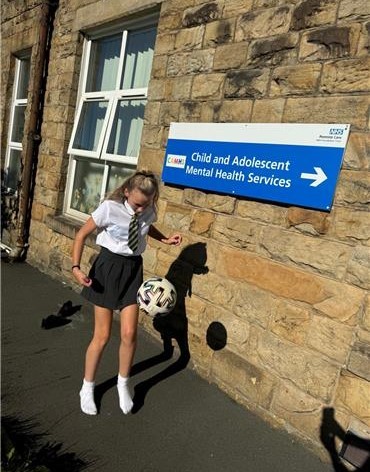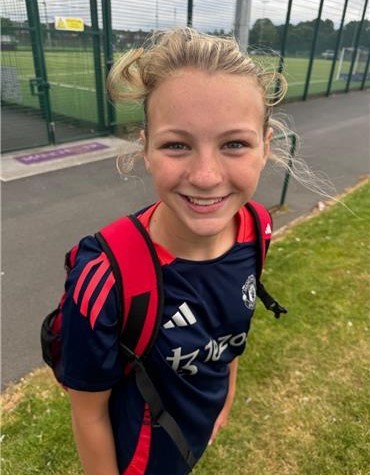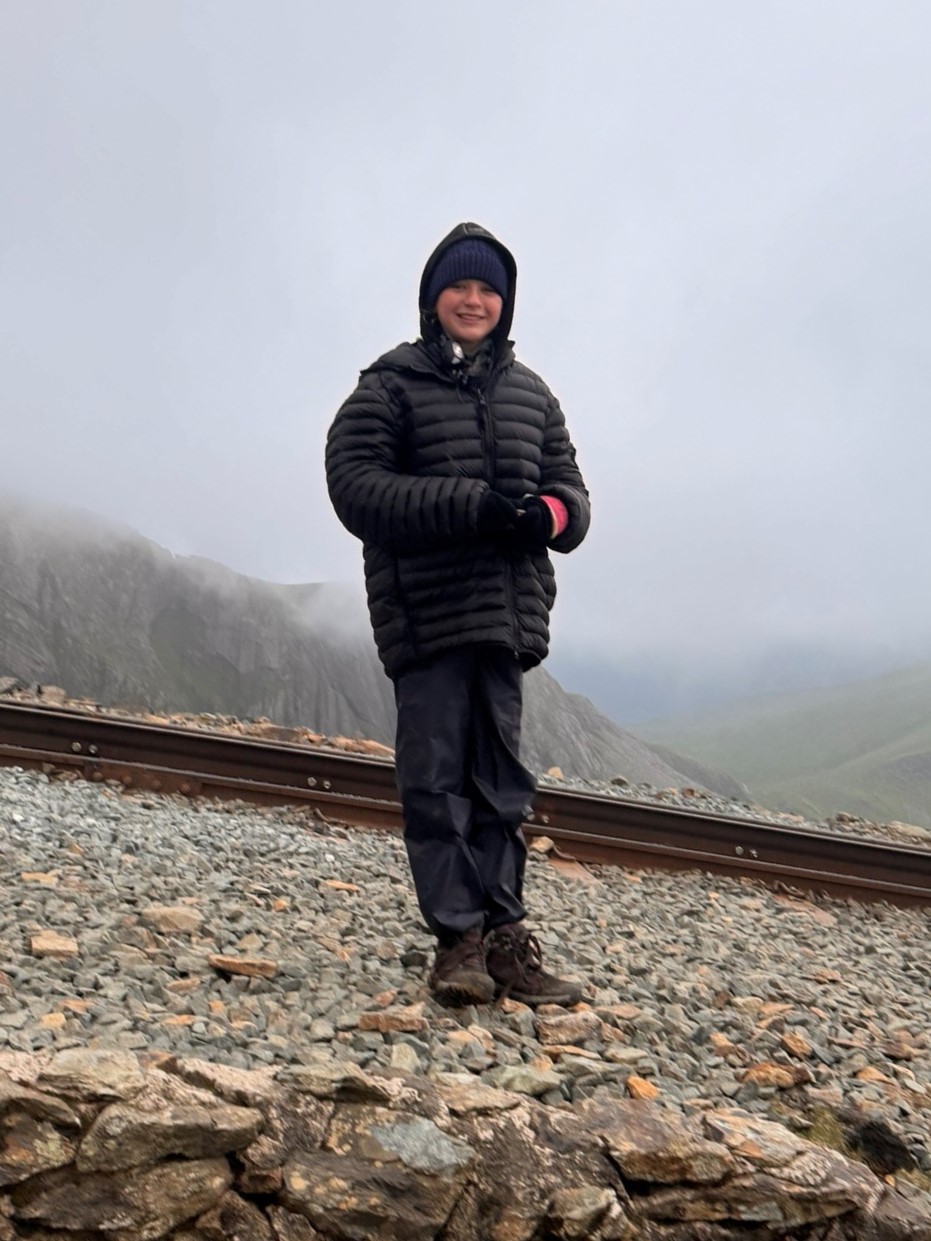Published on: 6th November 2024
 Halle Morley, from Bury, was 11 years old when her mother first noticed a change in her eating habits.
Halle Morley, from Bury, was 11 years old when her mother first noticed a change in her eating habits.
Halle would have stomach-ache and feel bloated after eating, which led to strong feelings of anxiety at mealtimes. She would only eat small portions and foods from a restricted list that she felt were safe.
Her mother, Jemma Morley, arranged for a health assessment, and it was during this that a nurse practitioner recommended a referral to mental health services.
Jemma explained: “She changed almost overnight. At first, we thought it must be a physical problem like irritable bowel syndrome, as she was never concerned about calories or healthy eating. We didn’t consider that it could be the early warning signs of a mental health issue.”
Her physical condition deteriorated over time as she lost more weight and became more malnourished. Her hair started to fall out, and her heartrate decreased to dangerous levels.
She began to self-harm and had lost all hope that she would ever be able to get better and feel normal again.
Halle was referred to Bury child and adolescent mental health services. After an assessment, she was diagnosed with obsessive-compulsive disorder, including repetitive and intrusive fears of vomiting, which caused her to restrict her food choices and portion sizes.
Her mother said: “Halle was unrecognisable from the happy little girl she once was. She didn’t smile and didn’t enjoy anything. Her emotions were all over the place, and the slightest break to her routine would cause meltdowns and anxiety attacks.
I was at a complete loss of what to do. As a mother I felt powerless and out of control – how could I protect her from thoughts in her own mind?”
Halle had weekly sessions of cognitive behavioural therapy. Her consultant, Dr Alex Cheung, explained: “Obsessive-compulsive disorders in young people can be incredibly challenging because it often interferes with their daily lives, relationships, and ability to engage in normal activities. It’s essential to address these issues holistically to support their recovery.”
The team used exposure and response prevention therapy in her sessions. Dr Cheung added: “This approach involves gradually exposing the person to their fears while helping them to resist the compulsive behaviours that follow. By doing this, we aim to break the cycle of anxiety and avoidance that keep those symptoms alive.”
Knowing Halle’s discomfort in hospital settings, the team made reasonable adjustments to help her feel more at ease. Dr Cheung explained: “We were able to conduct a lot of the sessions in Halle’s home. Being in a familiar environment enabled us to build more rapport and increase her willingness to engage with the therapy.”
 Despite her challenges, Halle was determined to go to school and attend her football training sessions as a proud member of Manchester United’s Girl’s Academy. The coaching team also worked closely with her doctors to support in her recovery.
Despite her challenges, Halle was determined to go to school and attend her football training sessions as a proud member of Manchester United’s Girl’s Academy. The coaching team also worked closely with her doctors to support in her recovery.
Halle explained, “I used school and my football training as a positive focus. It gave me a reason to keep going and made me want to get better as I knew my health was affecting my ability to train as well as I used to, but I couldn’t let it stop me. I loved playing too much and it was the one thing that would take my mind off everything.”
Almost a year into her recovery, Halle had put on weight, her heartrate had improved and her hair had started to grow back.
She was passionate about giving something back to the people who changed her life and decided to raise money for Pennine Care Charity. Newly established, the charity raises additional funds to enhance the care, experiences and outcomes for its patients, people and local communities.
 Halle chose to do a sunrise hike of Snowdon, with her closest family and friends by her side, and together they raised over three and a half thousand pounds.
Halle chose to do a sunrise hike of Snowdon, with her closest family and friends by her side, and together they raised over three and a half thousand pounds.
Wes Partington, director of Pennine Care Charity added: “Halle’s story is truly inspirational, and we are so grateful not only for her donation, but also her determination to raise awareness and help others. The money she has raised will benefit other children and young people receiving care and support from local mental health services.”
Halle’s family have praised Bury child and adolescent mental health service for all their support. Jemma said: “None of this would have been possible without them. They’ve truly saved my little girl and brought her back to me. I’ll be forever in their debt.
Raising money for the Pennine Care Charity is the first of many steps that we plan to take to reward the team and the organisation for the remarkable work they do. Halle is determined to spread the word and help other children going through difficulties. Watch this space.”